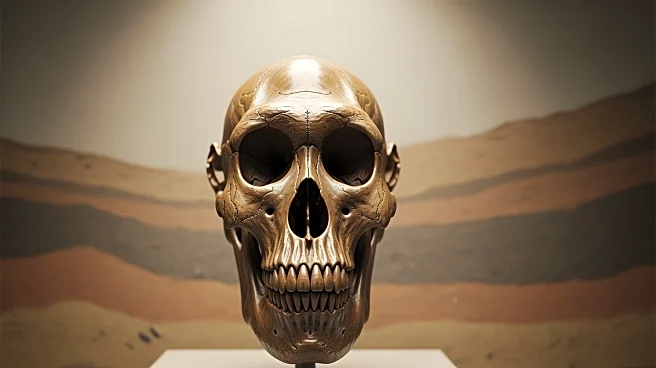What's Happening?
The Omo-Turkana basin in Africa remains a crucial site for understanding human evolution, with recent discoveries of ancient stone tools and fossils. Researchers led by David Braun at George Washington
University found 1290 stone tools dating back 2.44 to 2.75 million years, indicating habitual tool-making by early hominins. The basin has yielded significant hominin fossils, including some of the oldest Homo sapiens remains, suggesting our species may have evolved independently for several hundred thousand years. The basin is a key location for studying the Homo genus, which was well-represented in the region between 2.7 and 2 million years ago.
Why It's Important?
The Omo-Turkana basin provides critical evidence for understanding human evolution, challenging previous timelines and offering insights into the development of tool-making and social behaviors. The discoveries suggest that Homo sapiens and other hominins may have evolved earlier than previously thought, impacting theories on human migration and adaptation. This research contributes to a broader understanding of human origins and the evolutionary processes that shaped our species.
What's Next?
Continued research in the Omo-Turkana basin is expected to yield more discoveries, further refining our understanding of human evolution. The sustained study over decades highlights the importance of long-term archaeological research in uncovering the complexities of human history.
Beyond the Headlines
The basin's discoveries underscore the importance of interdisciplinary research and collaboration in archaeology, providing a comprehensive view of human evolution and the environmental factors that influenced it.









